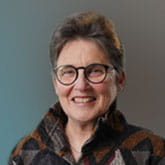A recent New York Times story described vividly the challenges that small ambulatory practices are facing across the country since the beginning of the COVID-19 crisis. Faced with drastically reduced patient volumes, many practices are confronting significant financial peril.
A Commonwealth Fund survey found that ambulatory patient visit volumes decreased by about 60% and remained at this level through the middle of April. Many practices made up some of these declines with the rapid deployment of virtual visits such that about 30% of all visits are now being provided via telehealth.
Pediatric practices are further challenged by two elements unique to pediatrics.The first is the insignificant role that Medicare payments play in their revenue structure. This excluded them from some of the pre-payment programs that Medicare made available to other ambulatory practices.The second unique financial burden stemmed from the sharp decline in immunization rates among children during the pandemic and the large vaccination inventory that these practices had paid for and had on hand when the pandemic started.
Ambulatory practices, both primary care and specialty, play a crucial role in the U.S health system. It has been shown that each additional primary care physician per 10,000 patients generates 5.5% fewer hospital admissions, 11% fewer emergency department visits and 7% less surgeries. In addition to their day to day role, ambulatory practices have been playing a crucial role during the COVID-19 pandemic as first line of defense, caring for COVID-19 patients in the community and after their discharge from the hospital.
The negative impact of the COVID-19 epidemic could have devastating effects on the rural healthcare system in this country since ambulatory rural practices play an even greater role as so many community hospitals have closed in recent years. According to the Government Accountability Office’s (GAO) analysis,64 rural hospitals closed from 2013 through 2017. This represented approximately three percent of all the rural hospitals in 2013 and more than twice the number of closures compared to the prior five-year period, leaving doctor’s offices in many communities as the only point of access for healthcare for hundreds of miles.
It is important to recognize that in spite of the infusion of billions of dollars into the healthcare system during this pandemic, small and medium size independent practices have not been the beneficiaries of these funds. It is critically important that these practices survive this crisis. An urgent plan needs to be put in place to support these struggling practices. One option that has been proposed would be to rapidly convert payment to these providers from a fee-for-service to a capitated per-member, per-month methodology.This would provide support to these practices in a manner proportionate to the number of patients attributed to the practice. It would decouple the financial well being of the practice from the volume of in-person visits that occur and provide incentive to maintain robust patient panels. Instituting a program such as this will certainly support the assertion that independent small and medium practices are too essential to fail. Once the crisis resolves, there are also many other opportunities for practice transformation that would be enabled by this reimbursement model, but first many of these practices need a lifesaver in order to survive.
Meet NextGen Ambient Assist, your new AI ally that generates a structured SOAP note in seconds from listening to the natural patient/provider conversation.
Read NowCategories
- Analytics and Reporting
- Regulatory Updates
- Artificial Intelligence (AI)
- Community Health
- COVID-19
- Dental
- Documentation
- Electronic Health Records
- Financial Management
- Health IT 101
- Industry news
- Integrated Care
- Interoperability
- Mobile EHR
- NextGen Advisors
- Patient Experience
- Practice Management
- Provider Experience
- Patient Engagement
- Population Health
- Revenue Cycle Management
- Small Practice
- Telehealth
- Value-based Care
